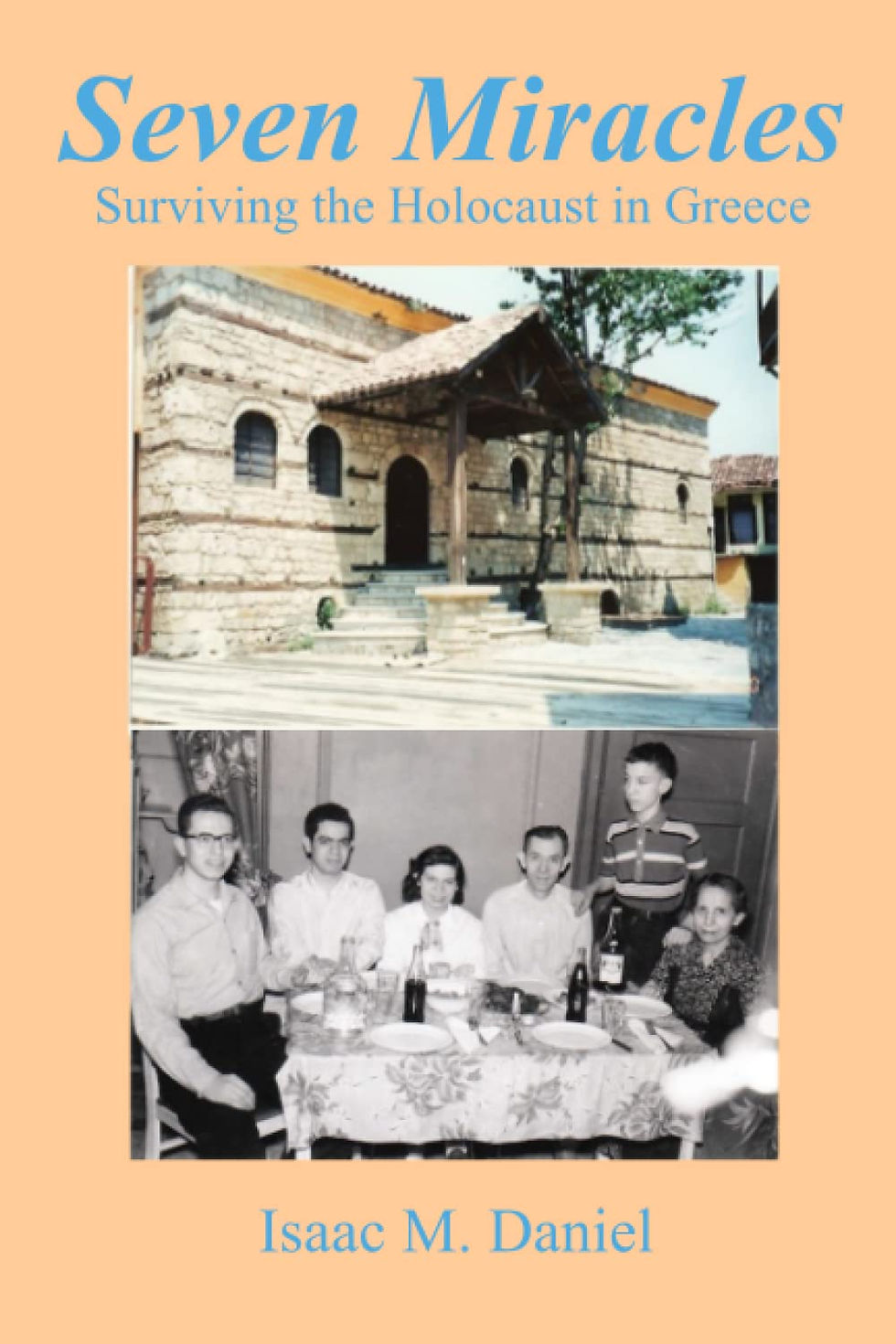Sephardic Book Review - Don’t Forget Me
- Dr. Leon Saltiel

- Aug 31, 2021
- 3 min read

“Don’t forget me, my dear children, my beloved children, my only reason for living.”
With these words Neama Cazes, a 54-year-old Jewish woman trapped in the ghetto of Thessaloniki, bid farewell to her sons, Maurice and Berto, on April 4, 1943, a few days before she was deported and found a tragic death in the Auschwitz-Birkenau death camp.
The newly published Do Not Forget Me: Three Jewish Mothers Write to Their Sons from the Thessaloniki Ghetto contains some 50 letters sent by three different Jewish mothers from Thessaloniki to their sons, who were hiding in Athens during the time of the Nazi occupation. The letters of Sarina Saltiel, Mathilde Barouh, and Neama Cazes constitute remarkable pieces of correspondence, shocking accounts of life in the ghetto with an emotional intensity rare even by the standards of Holocaust testimony.
Between March 15 and August 10, 1943, some forty-three thousand Jews of Thessaloniki were transported to the Nazi death camp of Auschwitz. Of those, less than one thousand returned back alive. This was a devastating blow to the Jewish population of Thessaloniki, a major Jewish center in Europe since the arrival of the Sephardic Jews after the Spanish Inquisition in 1492. The Jews had constituted the majority of the population — and at times even the absolute majority — thus marking the city’s character for centuries.
Greece in 1942-43 was divided into three occupation zones by Germany and its Italian and Bulgarian allies. A border line divided the German and Italian zones, as Thessaloniki was under German control and Athens under Italian control. As the Italians did not wish to implement antisemitic measures in the territories they controlled, they became a safe haven for Jews, with several hundred fleeing Thessaloniki to go to the southern parts of the country, most of them to Athens. This included the four sons, who were already located there or moved soon after the Nazis started to implement racial laws in Thessaloniki.
The three letter collections are rather extraordinary, not only because of the great volume, rich content, and near completeness of the series, but also because these correspondences come from three different authors—three mothers who write to their sons—thus adding a rare multiperspectivity within a common pattern. The letters can shed light on the lives of ordinary Jewish citizens of Thessaloniki on the eve of the deportations, never before known in such detail, and contain invaluable narrations.
Through these pages of testimony, a variety of factors becomes evident. First, the letters are emotionally charged. The authors described their feelings, fears, prayers, and anguish, which escalated as they realized that their final days were approaching. Second, they detailed aspects of daily life, which were quite challenging because of the war situation, and eventually the antisemitic restrictions. Spending their time each day was a challenge, and they had to entertain themselves among family, friends and neighbors. Lastly, the correspondence between mother and son is, at times, deeply touching and moving, and radiates an extraordinary humanity. The mothers could not hide the great love they felt for their sons and provided them with last words of advice.
The volume first appeared in Greek in 2018, and generated considerable attention. A play, a feature film, and a documentary—featuring the President of Greece, Katerina Sakellaropoulou—were inspired by it, as well as numerous high-school projects and academic projects.
The publication is edited by Thessaloniki-born historian, Leon Saltiel, who has also recently published the monograph The Holocaust in Thessaloniki: Reactions to the Anti-Jewish Persecution, 1942–1943 (Routledge, 2020), a highly-acclaimed study which expands the debate on the anti-Jewish persecution in this city, presenting new facts, interpretations and archival materials. It includes a comprehensive introduction, a timeline of important events, maps and several illustrations.
Do Not Forget Me: Three Jewish Mothers Write to Their Sons from the Thessaloniki Ghetto
Edited by Leon Saltiel
With Forewords by Serge Klarsfeld and Yannis Boutaris
Letters translated from French by Jenny Demetriou
Published by Berghahn Books in 2021 berghahnbooks.com/title/SaltielDo 50% discount code for El Ermanado subscribers: SAL059 until end of September 2021



Comments